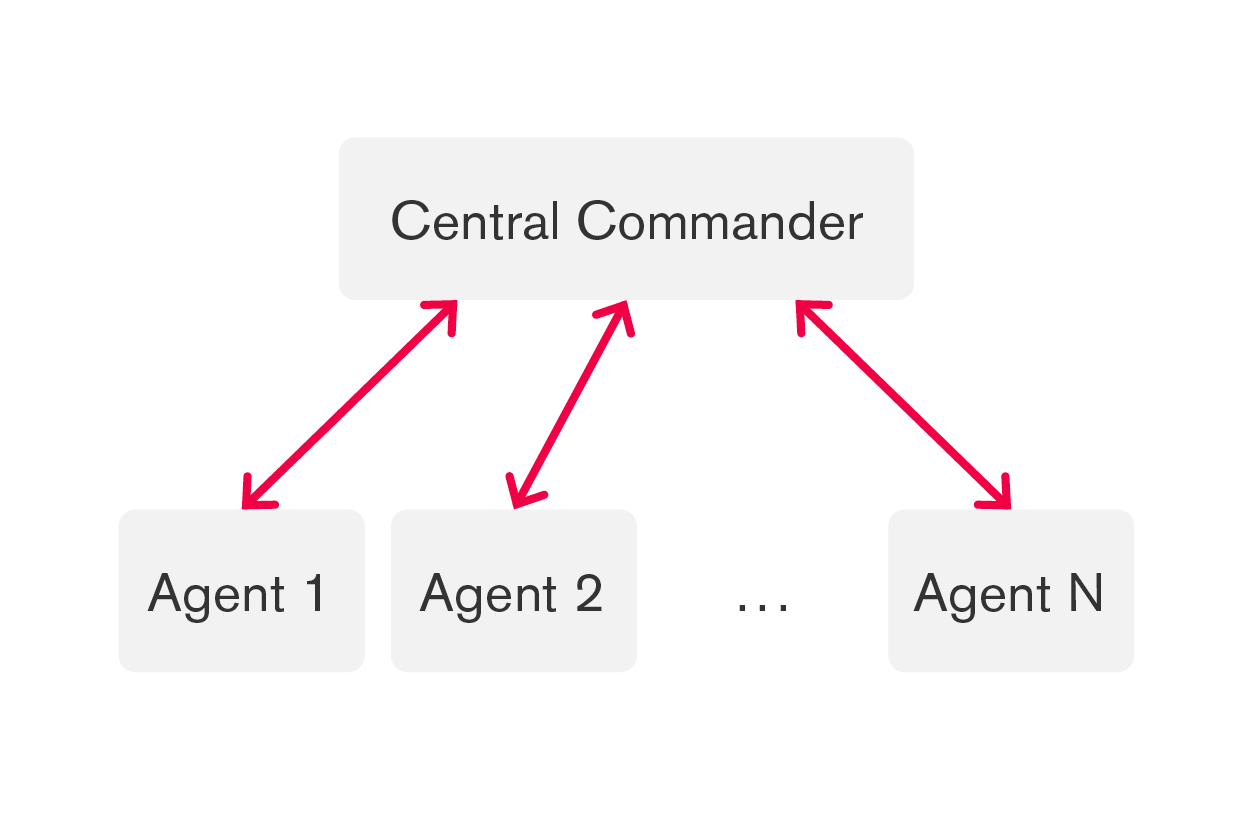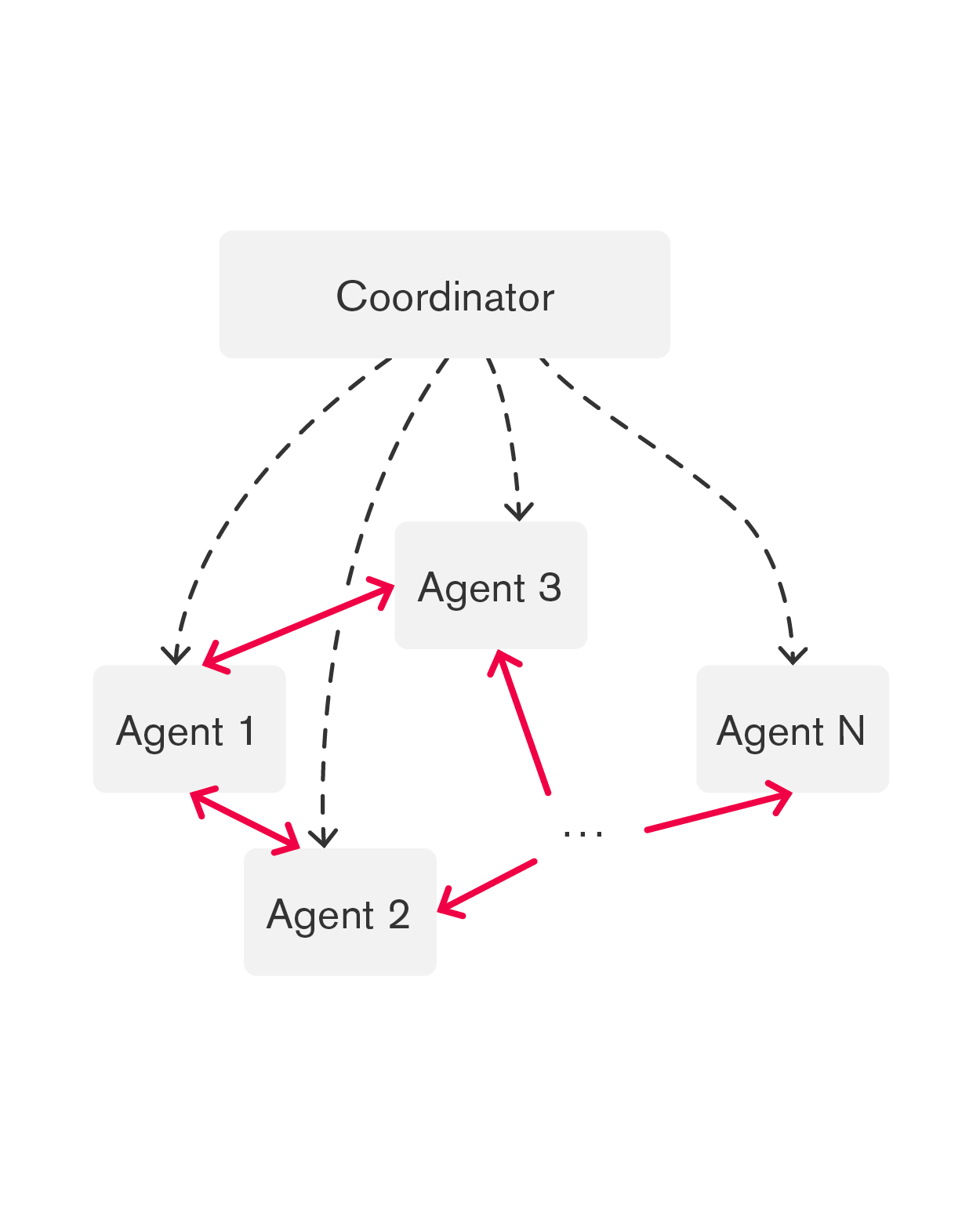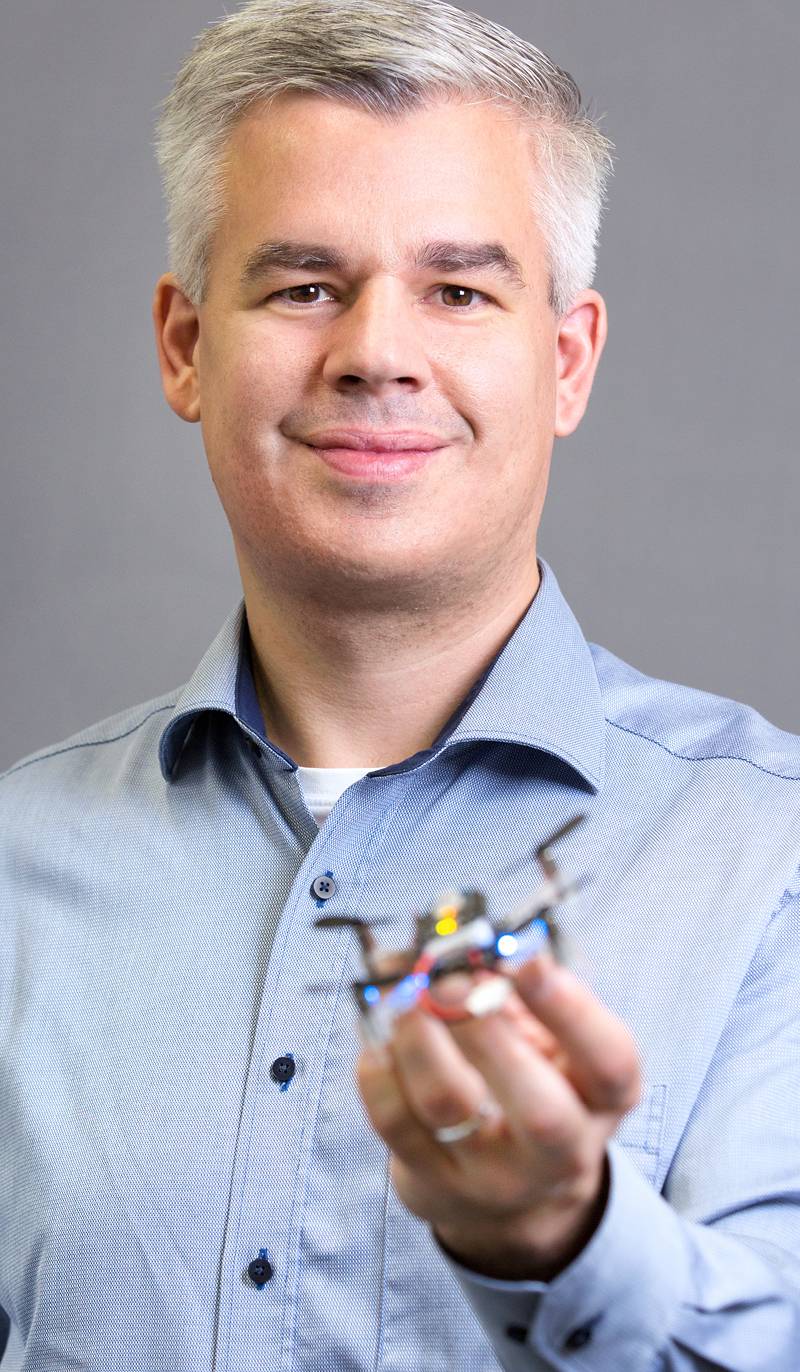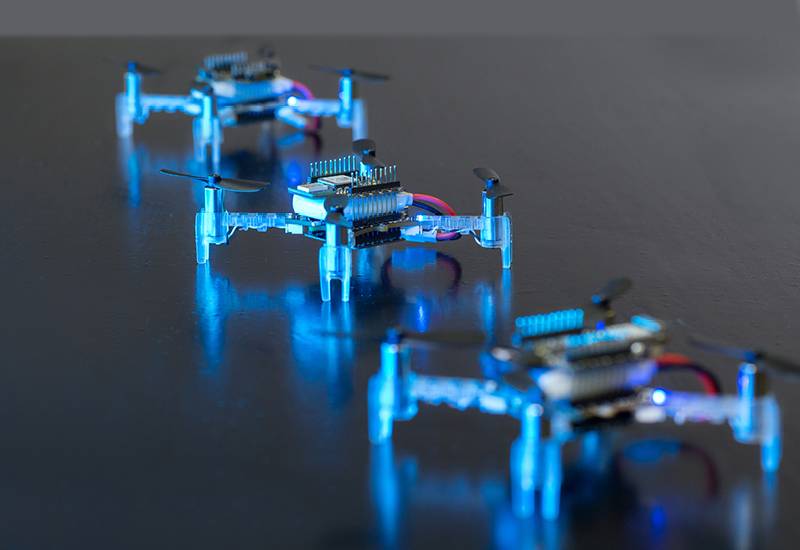
Cooperative Control Lab
Field of Research
Welcome to the website of the Cooperative Control Laboratory of the Faculty for Mechanical and Process Engineering. On this page, you will find information about the objectives of our research activities and our demonstrator system. If we have piqued your interest, either for finding a topic for your bachelor or master thesis, a student part-time job or for an industrial cooperation, please do not hesitate to contact us.
Research Objectives
The increasing availability of wireless communication systems allows for the creation of networks among a large variety of systems, forming a complex networked system of systems, which are commonly referred to as agents. Exemplary areas of application for such Multi-Agent Systems (MAS) are:
- Traffic applications: Car-to-Car and Car-to-Infrastructure, e.g. [5]
- Disaster Control Management/Search and Rescue, e.g. [2], [6]
- Research: Exploration, mapping of unkown terrains, e.g. [3], [4]
- Decentralized Energy Distribution/Smart Grids, e.g. [1]
The great heterogeneity of the systems involved characterizes such applications, which require a high degree of flexibility with regard to the network architecture and are subject to a high degree of stochastic influences. Classic, hierarchically structured approaches with a central computing node for coordination, control and state estimation quickly reach their limits and often lead to unrealistic requirements for the underlying communication network. In such approaches, a central commander collects and processes all the information and transmits commands to each individual agent as illustrated in Fig. 1. Loss of messages or delays can lead to drastic deterioration in performance and thus jeopardize the entire functionality of the overall system.


Instead, our activities focus on the development and application of decentralized algorithms for planning, control and state estimation in multi-agent systems. Decentralized approaches assign a high degree of autonomy to the individual agents. The role of the central commander reduces to a coordinator and can even be omitted entirely as depicted in Fig. 2. The design of such decentralized systems requires interdisciplinarity, since the close interlinking of planning, control and state estimation with communication technology must be considered. To this end, new methods have to be developed and we would like to actively contributing to developments in this field. Fig. 3 summarizes different domains in the field of decentralized multi-agent systems.In the current early phase of laboratory construction, we are primarily pursuing topics of communication, (cooperative) navigation/data-fusion, cooperative path-planning and distributed exploration which will serve as a foundation for higher-level tasks such as task allocation and distributed optimization.

Literature
[1] Kienle et. al.: 100 % Green Computing At The Wrong Location ?, IEC IEEE CHALLANGE, 2012, Smart grid - Wikipedia
[2] Waharte et. al.: Supporting Search and Rescue Operations with UAVs, Proc. of the International Conference on Emerging Security Technologies, 2010
[3] Renner et. al.: Hybrid Underwater Environmental Monitoring SenSys’14, November 3–5, 2014
[4] Nowak et. al.: Martian swarm exploration and mapping using laser SLAM, Remote Sensing and Spatial Information Sciences 2013
[5] D. Wu; H. Liu; Y. Bi; H. Zhu: Evolutionary Game Theoretic Modeling and Repetition of Media Distributed Shared in P2P-Based VANET, International Journal of Distributed Sensor Networks, 2014
[7] O. A. Saraaeh; A. Alsaraira, I. Khan; P. Uthansakul: Performance Evaluation of UAV-Enabled LoRa Networks for Disaster Management Applications; Sensors Vol. 20(8), 2020

Contact
Prof. Dr.-Ing. Klaus Kefferpütz
Laborleitung
F 1.13
Phone: +49 821 5586-3165
[Bitte aktivieren Sie Javascript]
Contact for cooperation inquiries
Gabriele Schwarz
Leitung ITW
Phone: +49 821 5586-3320
[Bitte aktivieren Sie Javascript]
Homepage

